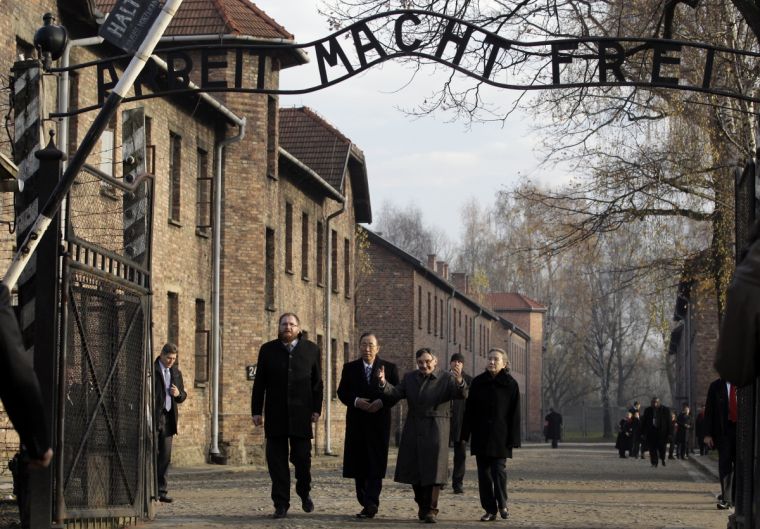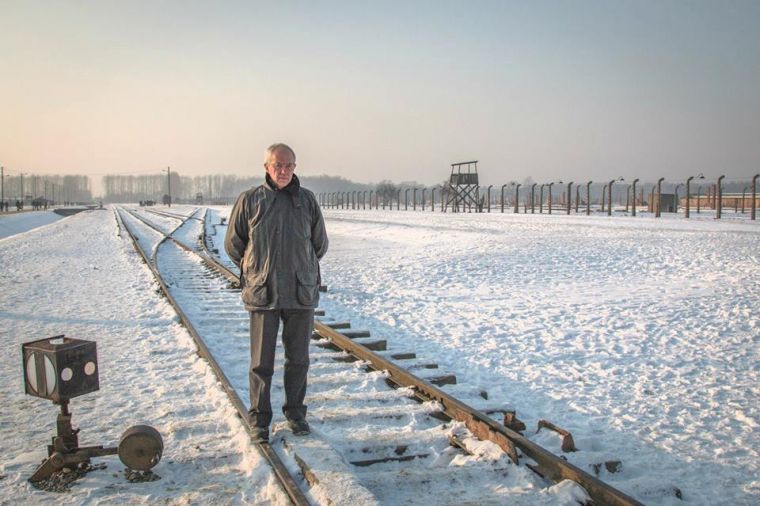Auschwitz Memorial Museum Director Appeals For Death Camp Staff Documents

The head of the memorial museum at Auschwitz has issued a public appeal for documents, photos, letters and diaries of staff who worked there during the Second World War.
In a statement on the museum website, Dr Piotr MA Cywiński, director of the memorial museum at the former Auschwitz-Birkenau Nazi concentration and death camp in Poland, appeals for documents, photographs, personal letters and other materials relating to people who worked at Auschwitz.
Writing in advance of Holocaust Memorial Day on January 27, Cywiński says: "Without a fuller analysis and without understanding the motivation and mentality of the perpetrators, we are relying just on our intuition in our our efforts to be wise and to warn future generations. Please help!"
More than six million Jews were murdered in the Nazi Holocaust, plus hundreds of thousands of Gypsies, homosexuals, disabled people, Soviets and Polish people, including many Catholics, other Christians and children.
Auschwitz-Birkenau was run by the German Nazi army's Waffen-SS.
So far, the memorial museum has relied mainly on memories and belongings of former prisoners and the camp's own documentation.
"To this day, this is the foundation of our knowledge," said Cywiński. "There are, however, a number of sources that could enable us to understand better and more fully the motivation of the perpetrators. In the archives there is currently very little material created by members of the staff at Auschwitz."
He added: "I am absolutely convinced that only a joint effort can lead to a fuller understanding of the mechanisms of the system of hatred. To analyse what happened from a perspective of the victims inevitably cannot fully. We now need new sources for a fuller picture of the history of Auschwitz and the Holocaust."
January 27 marks the anniversary of the liberation of Auschwitz-Birkenau. The main theme of this year's day is 'Time'.
Cywiński said: "Memory is always a struggle with time," adding that future generations must be made aware of the dangers of populism, xenophobia, antisemitism, and other extremist attitudes. As the last living eyewitnesses of these events near the end of their lives, he said, "we must once more try to build our memory with what we are left with: relationships and authentic documents and objects related to Auschwitz".
He said anonymity was guaranteed. Anyone with relevant documents should email archiv@auschwitz.org.

He spoke just after the Archbishop of Canterbury, Justin Welby, made his third visit to the death camp, leading a retreat of the new "learning community", a group of Anglican clergy on a programme of in-service training, for three days of prayer and theological and scriptural reflection.
Welby wrote on Facebook "Here are some reflections on recognising and responding to evil.
"This was my third visit to Auschwitz/Birkenau, and each time has been even more appalling. In early January the cold is penetrating, between nine and 14 degrees below centigrade. We were fully equipped with snow boots, layers of clothing, hats, gloves, scarves... yet it worked through layer after layer until we were cold to the core. The prisoners wore the equivalent of pyjamas and clogs. We were out in that cold for five hours in the day. They would be out for 12 hours. We were fed. They were starved.
"There are so many statistics about Auschwitz/Birkenau, but it defies description. Eighty-five per cent of prisoners died. Many in just days of arriving. Then there was the industrialised killing of the gas chambers. The vulnerable, the disabled, marginalised minorities, and above all the Jews: children, adults and the elderly, taken from a train to their deaths in as little as 30 minutes. Accounts were kept, profits were sought. No one can deny the reality of what happened. There is simply far, far, far too much evidence."
Talking about how to recognise and combat evil, the Archbishop noted that the perpetrators at Auschwitz tried to dehumanise their victims, in a way that actually cost the humanity of both.
"Prisoners killed others in order to live – and were then killed themselves. Others gave their lives, like St Maximilian Kolbe and St Edith Stein."
When one of the priests leading the retreat was asked who was to blame, he said: "People did it to people."
He said there is a need for silent reflection "in which we honour the victims, mourn our capacity for evil, and learn to beware".











